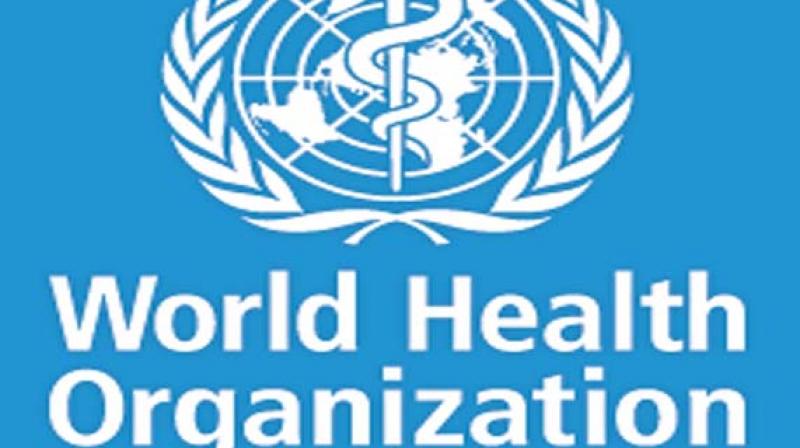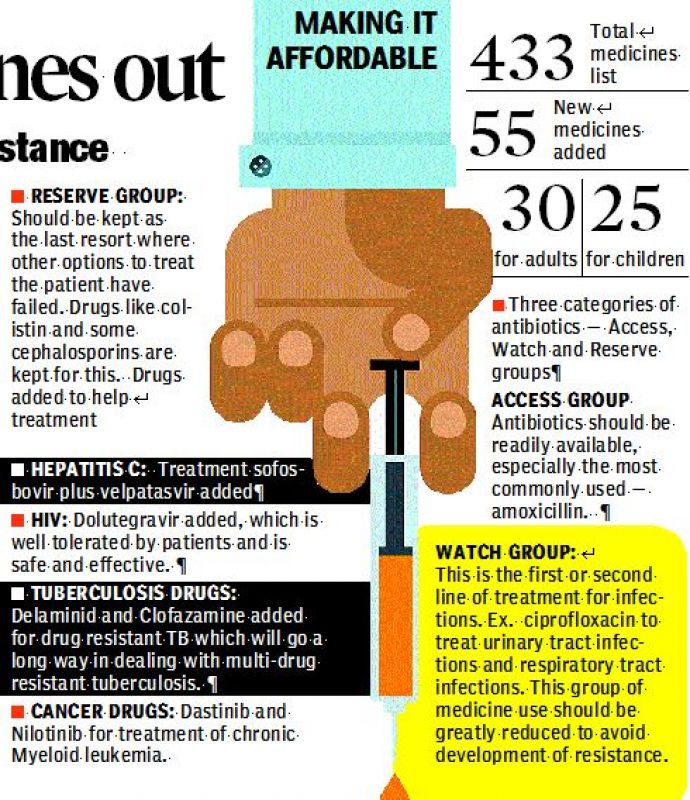WHO new list of key medicines out, 30 medicines for adults and 25 for children
The biggest revision in the EML is in the antibiotics section where antibiotics have been grouped into three categories.

Hyderabad: The World Health Organisation on Wednesday updated the Essential Medicines List and also dispensed new advice on the misuse of antibiotics.
Thirty medicines for adults and 25 for children have been added to the list, bringing the total to 433 drugs deemed essential for addressing the most important public health needs.
The biggest revision in the EML is in the antibiotics section where antibiotics have been grouped into three categories— Access, Watch and Reserve—which suggest when each should be used. This should check the too-frequent and improper use of antibiotics which is leading to resistance, rendering antibiotics ineffective and creating a major health crisis.
Dr Rajib Paul, critical care specialist, explains how antibiotics have been misused: “Rampant use of antibiotics across all disease spectrums has led to a grim situation in the intensive care unit. We are using very costly and toxic antibiotics like colistin and carbapenems, which are supposed to be used very sparingly.”
Drug resistance has been growing over the years, but has increased exponentially in the last few years, especially in India. Uncontrolled use of antibiotics, improper doses, continuous use of a drug, and over-the-counter availability have led to this situation.
Dr Hari Kishan explains how the misuse occurs and why it is dangerous. “Growth of fungal infections, for example, is becoming a cause of concern as it has very high mortality and is related to prolonged use of high end antibiotics. Then, the myth that antibiotics are required for all fevers is a completely wrong notion and this has to be done away with. Healthcare professionals have to come together and create mass awareness,” he says.
Drug control authorities must also ensure that the rampant use of such drugs is checked and there is strict supervision of the sale of antibiotics.
Dr Suneetha Narreddy, infectious diseases consultant at Apollo Hospitals says this step by WHO is to enhance treatment outcomes, reduce the development of drug resistant bacteria and preserve the effectiveness of the last resort antibiotics when others fail. “WHO has taken this step to fight the development of drug resistance by ensuring the best use of antibiotics. The global community has identified uncontrollable infection-related deaths, which must be controlled,” she said. It’s important for healthcare providers to explain the serious consequences of antibiotic overuse. They must, for example, make patients and their family members understand why high-end antibiotics are not given to treat viral fevers.
The WHO EML is used by many countries to increase access to medicines and guide decisions on which products are essential and must be made available to their population.
Dr S Shanker, a general physician, says the WHO list must be backed by state governments and healthcare providers. "It requires a detailed strategy to make people understand the reason for taking this step."


